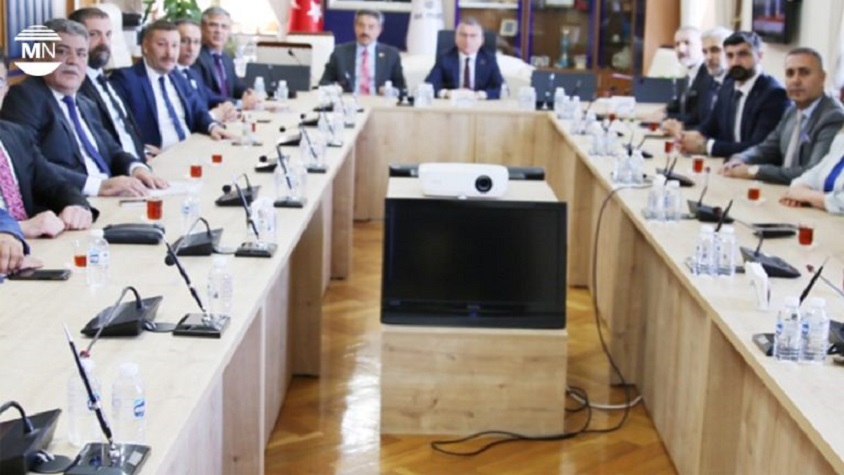Bar Associations in Southeastern Turkey present government with roadmap for democratic transition
ANKARA — Amid ongoing discussions about peace efforts in Turkey, Bar Associations from 16 provinces in Turkey’s east-southeastern provinces – where the Syriac Tur Abdin is located within a majority Kurdish area – presented a detailed roadmap to Turkish Parliament. The Bar associations call on the government to adopt a 17-point proposal aimed at achieving a democratic transition and lasting peace.
The document, submitted to Turkish Parliament, advocates for expanding legal and democratic rights, explicitly recognizing Kurdish linguistic and cultural rights (the document does not explicitly mention other peoples living in Turkey), as well as ending centralized state oversight of local administrations. It also emphasizes the need for legal reforms, minority rights protections, as well as stronger democratic governance, urging Parliament to take an active and foundational role in leading this process given its historical and constitutional responsibility to ensure the legitimacy of peace efforts.
The proposal demands the guarantee and exercise of fundamental rights and freedoms without punitive measures, stressing that freedom of thought, expression and association are essential pillars of a democratic society.
It calls for constitutional recognition of equal citizenship and political participation rights, alongside prison reforms, judicial independence and an end to the appointment of government-appointed trustees to replace elected municipal officials. The document also insists on the state’s compliance with international legal obligations.
Additionally, the proposal highlights the importance of disarmament and reintegration, the establishment of a truth and reconciliation commission, and acknowledgment of shared suffering with fairness and humanity.
It advocates for local governance reforms to deepen democracy and constitutional safeguards for linguistic and cultural rights. Security strategies, it argues, must align with the principles of a law-abiding democratic state. Long-term, inclusive policies are also needed to address regional poverty and improve access to employment and education.
The proposal concludes by calling for a democratic, liberal and pluralistic constitutional process involving all society groups after these reforms are implemented. The new constitution, it states, should serve as a social contract that embraces diversity.
The Bar Associations involved have long addressed the region’s challenges, combating human rights violations, particularly in justice and law, while advocating for restorative justice.



















